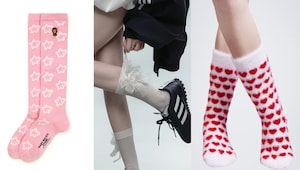What is blue beauty and why you should be on board
Blue is the new green!

Adopting a sustainable lifestyle is definitely not easy, but given the condition of the world we are living in today, it is all about doing our bit for the environment. And the easiest way to kickstart your eco-friendly lifestyle is to be a mindful consumer.
Over the past few years, sustainability has been a major trend in the fashion as well as beauty industry—whether it is people thrifting instead of buying new clothes, or using beauty products that don’t have a negative impact on the environment. The Green beauty trend led to consumers being more aware of environmentally harmful ingredients like parabens and sulphates that brands use in their products. It also leads to consumers to become aware of the horrific details behind animal testing. So, with green beauty covering most of the environmental concerns posed by the beauty industry, where exactly does blue beauty fit in?
What is blue beauty?
Green beauty has missed out on a huge part of the earth’s ecosystem—the ocean—and that is where blue beauty comes in. It focuses on the ocean and everything that lives in it. It aims to lessen the impact that beauty products have on aquatic ecosystems because even after the green beauty purge, brands still use ingredients like microbeads and microplastics that are harmful to marine life.
You might be wondering how beauty products on your shelves might be affecting the oceans. The problem starts when these products go from your shelves into the bins, from where they end up in the water. Plastic in all forms negatively affects marine. Often, they mistake it for food and ingest toxic plastic. In other cases, they get tangled in plastic debris, which causes immobility and thereby death. It even affects coral reefs and is the cause of several coral reefs dying.
The UN estimates that around 75 to 199 million tonnes of plastics are currently found in our oceans, and if things continue this way, the amount of plastic waste entering aquatic ecosystems could nearly triple from 9-14 million tonnes per year in 2016 to a projected 23-37 million tonnes per year by 2040. Some experts believe that by 2050 plastic waste in the ocean might outweigh the fish.
How does blue beauty help?

It all seems pretty grim when it comes to statistics, which is where blue beauty come in to lessen the load of plastics on the oceans. It aims for responsible, plastic-negative packaging. Brands following the blue beauty standard try to be as zero waste as possible and use recycled plastic or glass in their packaging.
Blue beauty supports supply chain transparency to make sure that brands don’t use chemicals like Oxybenzone or Octinoxate, which are found in sunscreens that negatively affect coral reefs and marine life. Using products that don't use microbeads or mircoplastics help keep our oceans clean as these ingredients directly go into the water supply after we use them and do not decompose. Overall, blue beauty brands are finding ways to repair the damage that plastic has caused to the oceans in ways big and small. By supporting blue beauty brands you help the ocean recover, and protect marine life.
Here are our picks of blue beauty brands that you can buy from to support the cause.
Coola

Coola is a vegan and cruelty-free sunscreen brand that harnesses the power of plant cell activities to nourish and support healthy skin. The ingredients that they use in their products are sustainably sourced and eco friendly. Their packing is either made of glass or recycled plastics.
Juice Beauty

Juice Beauty is a vegan and cruelty-free brand that prioritizes sustainability. The brand relies on eco-friendly and sustainable practices, including a "farm to beauty" programme that grows plant-based ingredients at their own farm. All their product boxes are made with 100% FSC paper and packaging is made with recyclable materials.
Bare Necessities

This zero waste homegrown brand has shunned plastic and turned to glass. They use cloth and paper scraps as cushioning material for their products and use recycled paper for their lables.
L'Occitane

This French beauty brand has been providing refills of shampoos and shower gels to reduce plastic waste for a while. Recently, the brand dived deeper into sustainability by sponsoring Plastic Odyssey, a group of engineers, marine experts, anthropologists, and businesspeople who travel the globe gathering plastic waste. This gathered waste is reused or else is turned into fuel to power the ship.
more from Beauty

Why the angular bob haircut is the ultimate New Year glow-up

Beauty sticks are everywhere right now and these are the products worth trying

What to say to someone going through a breakup instead of “I’m sorry”

All the cobalt blue essentials you need for your 2026 wardrobe revamp

How to break your screen addiction without going off the grid

So many truly wild things happened during the 'Emily in Paris' season 5 finale

Fun cosy socks you should invest in while winter is still around

Every couple should fight (Taylor and Travis included)

How ‘The Housemaid’ movie stacks up to the book

Emily is heading back to Paris for season six but is this where we say goodbye?
